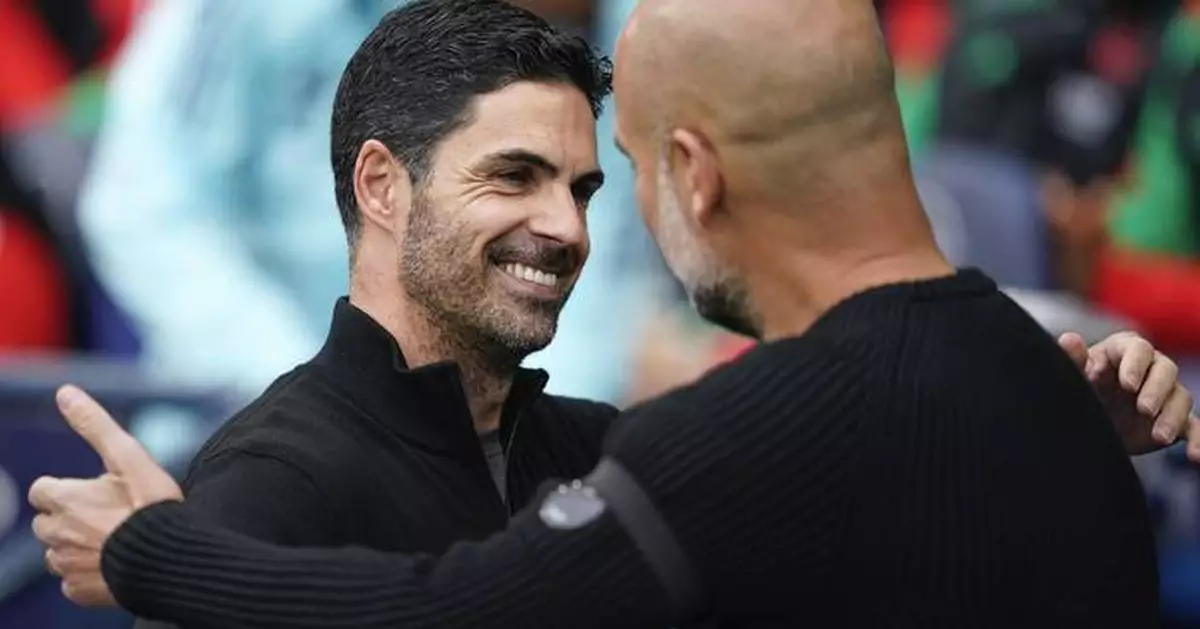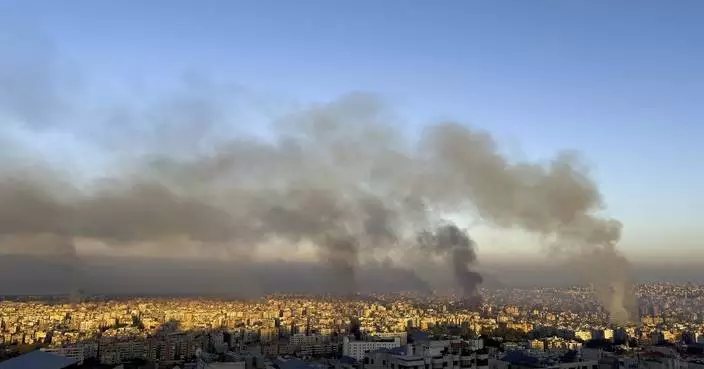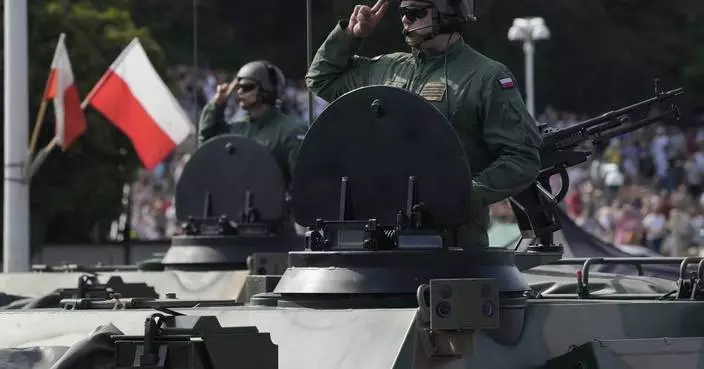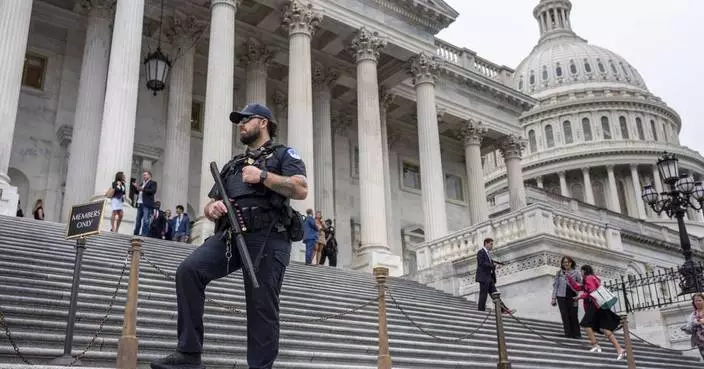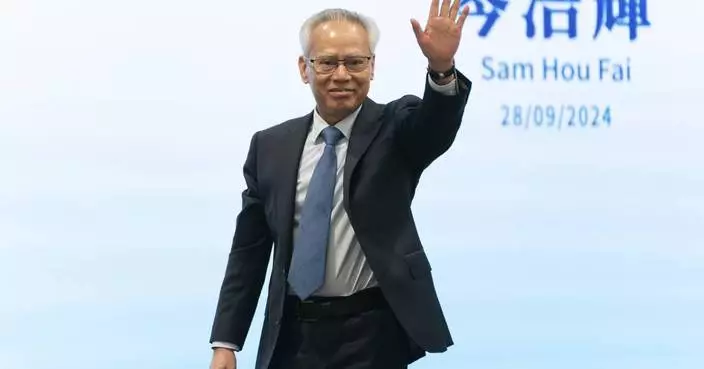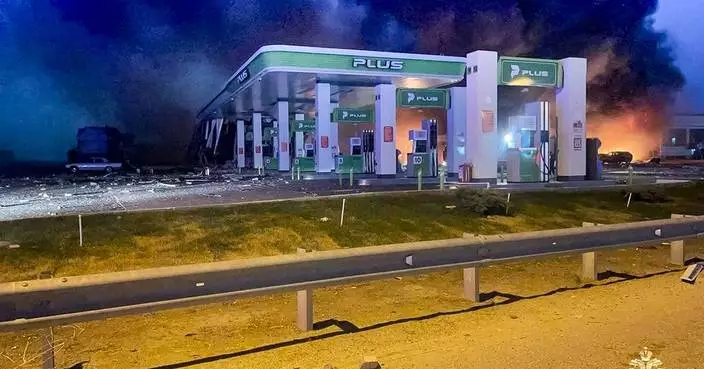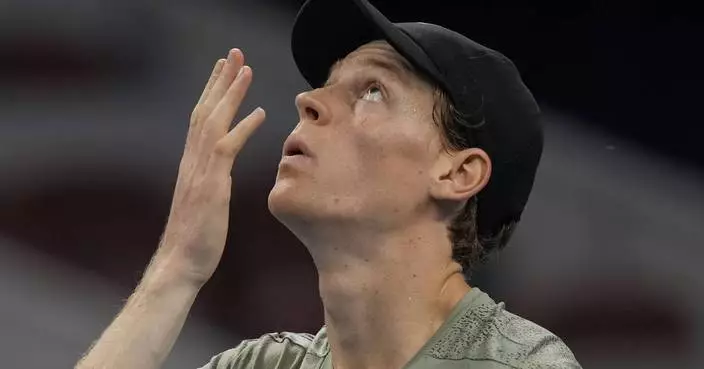MANCHESTER, England (AP) — The friendship between Manchester City manager Pep Guardiola and Arsenal manager Mikel Arteta could come under strain with the rivalry between their title-chasing Premier League clubs intensifying in recent days.
Arteta seems certain their relationship won't be damaged.
Guardiola, however, might have gotten irritated.
Arsenal’s tactics, and use of soccer’s so-called “dark arts,” brought some criticism from a number of City players after the feisty 2-2 draw between the teams last weekend.
Arteta responded rather cryptically by saying he has “all the information” about City owing to his time there as an assistant to Guardiola from 2016-19.
“So I know, believe me,” Arteta said.
Those remarks were sufficiently vague for Guardiola to wonder whether Arteta may actually be alluding to the off-the-field issues at City, which is currently defending itself against 115 charges of breaching Premier League regulations following an investigation into the club's financial affairs.
“Next time he has to be more clear exactly what does he mean," Guardiola said of Arteta. “He said he was here four years and we know exactly what happened here.
“It can be related (to) the process now with 115 charges, maybe it’s about that. He knows information about that maybe, or maybe he has something like ... I don’t know. OK, next time, like a good relation I have with him, hopefully this question has been asked. He can answer exactly what does it mean when he said he was here and ‘I know what’s happening here.'"
Guardiola was speaking Friday in a news conference that took place about the same time as Arteta was holding one at Arsenal's training base.
Asked about his relationship with Guardiola, Arteta said: “I love him, I respect him, I admire him and I admire his team and everything that he does. This is sport. One thing is our profession, another is our personal relationship.
“If our relationship was damaged because one draws and the other one wins or the amount of times that they’ve beaten us, I would not talk to him any more. So that’s not our relationship, especially the relationship that I consider both of us have. In sport it will never get in my way, a personal relationship, that’s for sure."
Guardiola said he feels Arsenal might be provoking his players into a rivalry, picking up especially on post-match comments by Arsenal defender Gabriel.
“Gabriel said it perfectly after the match — so this is a war, we are here to provoke the opponent, to push them," Guardiola said. “At the end what can you do? OK, you provoke me — I’m there. You want a war? I’ll do a war."
Arsenal has finished runner-up to City in the league the last two seasons.
AP soccer: https://apnews.com/hub/soccer
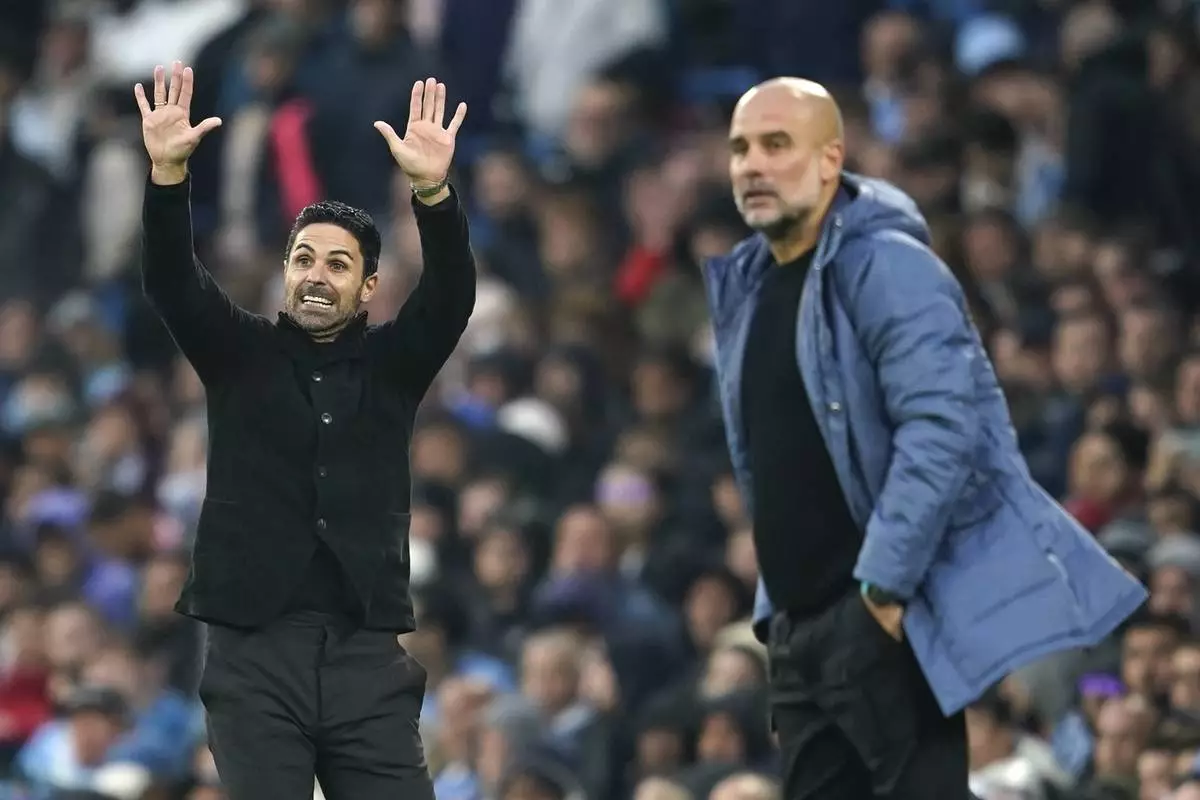
Arsenal's manager Mikel Arteta, left, gestures as he stands on the touchline next to Manchester City's head coach Pep Guardiola during the English Premier League soccer match between Manchester City and Arsenal at the Etihad stadium in Manchester, England, Sunday, Sept. 22, 2024. (AP Photo/Dave Thompson)
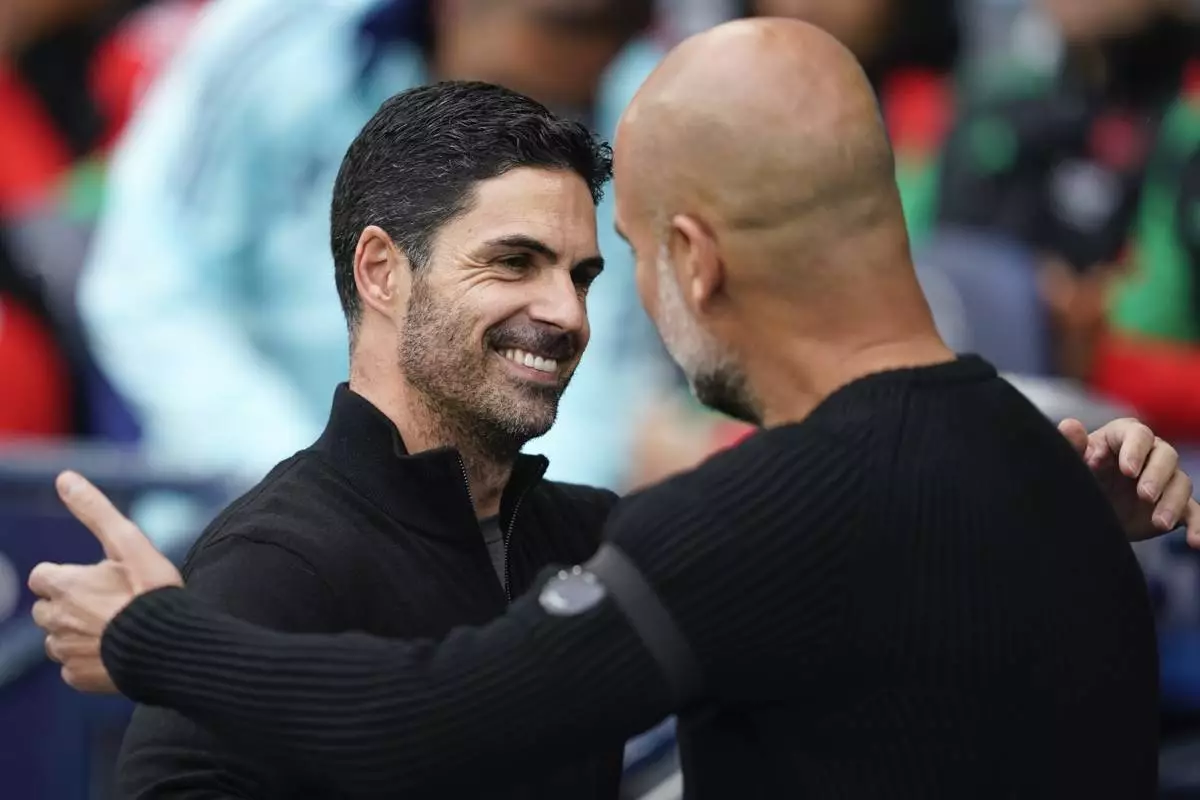
Arsenal's manager Mikel Arteta, left, embraces Manchester City's head coach Pep Guardiola before the English Premier League soccer match between Manchester City and Arsenal at the Etihad stadium in Manchester, England, Sunday, Sept. 22, 2024. (AP Photo/Dave Thompson)
BEIRUT (AP) — Lebanon’s Hezbollah group confirmed on Saturday that its leader and one of its founders, Hassan Nasrallah, was killed in an Israeli airstrike in Beirut the previous day.
A statement said Nasrallah “has joined his fellow martyrs.” Hezbollah vowed to “continue the holy war against the enemy and in support of Palestine.”
Nasrallah, who led Hezbollah for more than three decades, is by far the most powerful target to be killed by Israel in weeks of intensified fighting with Hezbollah. The Israeli military said it carried out a precise airstrike on Friday while Hezbollah leadership were meeting at their headquarters in Dahiyeh, south of Beirut.
The Lebanese Health Ministry said six people were killed and 91 injured in the strikes, which leveled six apartment buildings. Ali Karki, the commander of Hezbollah’s Southern Front and other commanders were also killed, the Israeli military said.
Lt. Col. Nadav Shoshani, an army spokesperson, said the airstrike was based on years of tracking Nasrallah along with “real time information” that made it viable. He declined to say what munitions were used in the strike or provide an estimate on civilian deaths, only saying that Israel takes measures to avoid civilians whenever possible and clears strikes ahead of time with intelligence and legal experts.
The Palestinian militant group Hamas in a statement issued condolences to its ally, Hezbollah. Nasrallah frequently described launching rockets against northern Israel as a “support front” for Hamas and Palestinians in Gaza.
“History has proven that the resistance ... whenever its leaders die as martyrs, will be succeeded on the same path by a generation of leaders who are more valiant, stronger and more determined to continue the confrontation,” the Hamas statement said.
It added that “assassinations will only increase the resistance in Lebanon and Palestine in determination and resolve.”
Immediately after the official confirmation from Hezbollah, people starting firing in the air in Beirut and other areas of the country, to mourn Nasrallah's death. Some were protesting that he was killed because of his support for the war in Gaza. “Wish it was our kids, not you, Sayyid!” said one woman, using an honorific title for Nasrallah, as she clutched her baby in the western city of Baabda.
Israel’s Chief of Staff, Lt. Gen. Herzi Halevi, said Saturday that the elimination of Nasrallah was “not the end of our toolbox,” indicating that more strikes were planned.
Israel has vowed to step up pressure on Hezbollah until it halts its attacks that have displaced tens of thousands of Israelis from communities near the Lebanese border. The recent fighting has also displaced more than 200,000 Lebanese in the past week, according to the United Nations.
The military said Saturday it was mobilizing additional reserve soldiers as tensions escalate with Lebanon, activating three battalions of reserve soldiers to serve across the country. It sent two brigades to northern Israel earlier in the week to train for a possible ground invasion.
Shoshani, the army spokesperson, said that Israel has inflicted heavy damage on Hezbollah’s capabilities over the past week by targeting a combination of immediate threats and strategic weapons, such as larger, guided missiles. But he said much of Hezbollah’s arsenal still remains intact and that Israel would continue to target the group. The Israeli military updated guidelines for Israeli citizens, canceling gatherings of more than 1,000 people due to the ongoing threat.
Approximately 60,000 Israelis have been evacuated from their homes along the Lebanese border for almost a year. Earlier this month, Israel's government said halting Hezbollah’s attacks in the country’s north to allow residents to return to their homes is an official war goal.
Iranian state television read the announcement from Hezbollah confirming Nasrallah's death live, but there was no other immediate comment. Iranian Supreme Leader Ayatollah Ali Khamenei in a Saturday message said "the resistance movement, heading by Hezbollah, will decide the fate of the region,” in a statement read on state TV.
Iran is the main supporter of Lebanese Hezbollah and other militant groups in the region.
Also on Saturday, Iran’s influential parliamentary committee of national security demanded “strong” response to Israel following a meeting of the committee. State TV also said people staged anti-Israeli rallies in support of Hezbollah in major cities and town across the country.
Iraqi Prime Minister Mohammed Shia al-Sudani of declared a three-day period of mourning in his country. Sudani came to power with the backing of a coalition of Iran-backed political factions, many of which have armed wings that are allied with Hezbollah.
Hezbollah started firing rockets on Israel in support of Gaza on Oct. 8, a day after Hamas militants launched an unprecedented attack on Israel, killing some 1,200 people and abducting another 250. Since then, the two sides have been engaged in cross-border strikes that have gradually escalated and displaced tens of thousands of civilians on both sides of the border.
Hostilities escalated dramatically last week when thousands of explosives hidden in pagers and walkie-talkies used by Hezbollah detonated, killing dozens of people and leaving thousands, including many civilians, with severe injuries to the eyes, face and limbs. Israel is widely believed to be behind the attack. Israel has also killed several top Hezbollah commanders in Beirut, especially in the past two weeks, in addition to the attack that killed Nasrallah.
Orna Mizrahi, a senior researcher at the Tel Aviv-based think tank Institute for National Security Studies and former intelligence analyst for the Israeli military and prime minister’s office, noted that Nasrallah was sometimes a “voice of reason,” interested in engaging Israel in a war of attrition and holding the militant group back from using the full force of their formidable arsenal against Israel.
Nasrallah's death could prompt some less senior members of Hezbollah to unleash much stronger weapons than have been used in the nearly yearlong exchange of hostilities between Hezbollah and Lebanon, she said. The biggest question mark right now, though, is how Iran will respond, said Mizrahi.
She added that Nasrallah's death could provide a window of opportunity, while the organization is significantly weakened, for Lebanon to dilute Hezbollah’s far-reaching influence, especially in the south, that threatens to drag Lebanon into a full-scale war with Israel.
On Saturday morning, the Israeli military carried out more than 140 airstrikes in southern Beirut and eastern Lebanon’s Bekaa Valley, including targeting a storage facility for anti-ship missiles in Beirut suburb of Dahiyeh. Israel said the missiles were stored underground beneath civilian apartment buildings. Hezbollah launched dozens of projectiles across northern and central Israel and deep into the Israel-occupied West Bank, damaging some buildings in the northern town of Safed.
In Beirut’s southern suburbs, smoke rose and the streets were empty after the area was pummeled overnight by heavy Israeli airstrikes. Shelters set up in the city center for displaced people were overflowing. Many families slept in public squares and beaches or in their cars. On the roads leading to the mountains above the capital, hundreds of people could be seen making an exodus on foot, holding infants and whatever belongings they could carry.
At least 720 people have been killed in Lebanon over the past week by Israeli airstrikes, according to the Health Ministry.
Mroue reported from Beirut. Abby Sewell in Beirut; Lujain Jo in Baabda, Lebanon; Nasser Karimi in Tehran; and Jon Gambrell in Dubai, United Arab Emirates, contributed.
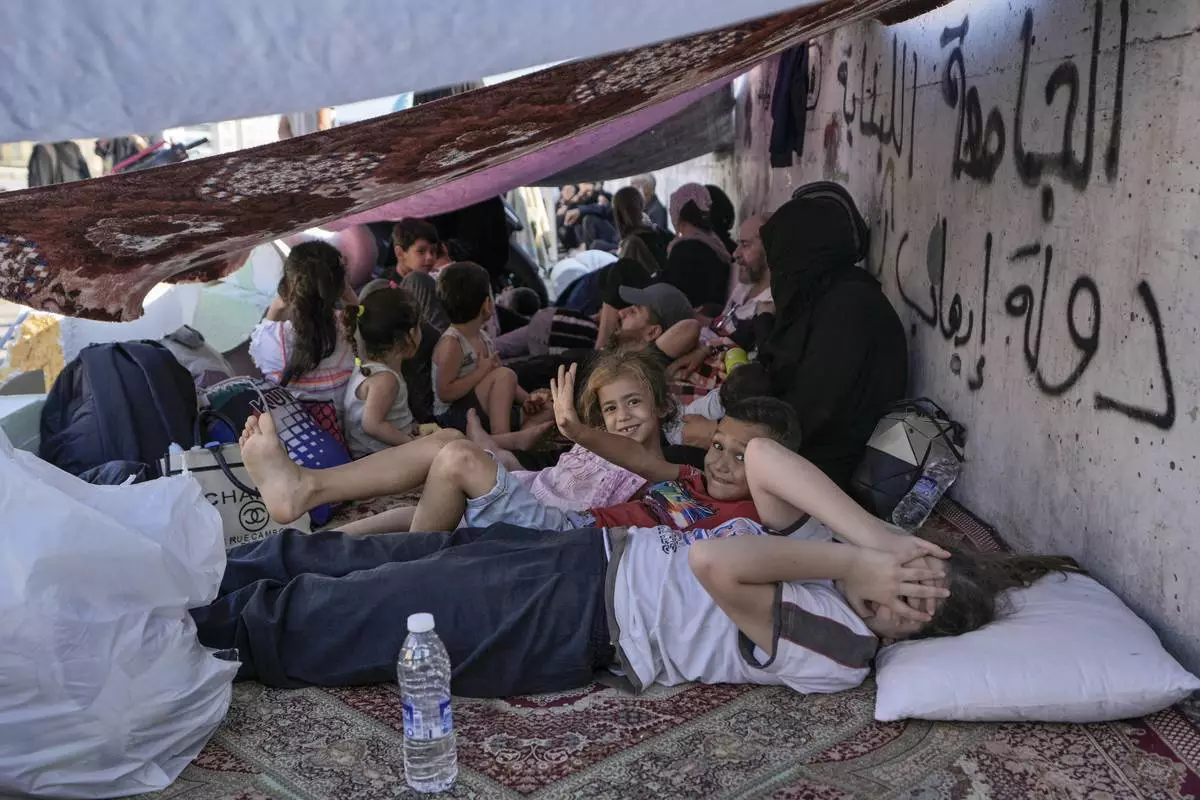
Children with their families lie on the ground in Beirut's Martyrs' square after fleeing the Israeli airstrikes in Beirut's southern suburbs, Saturday, Sept. 28, 2024. (AP Photo/Bilal Hussein)
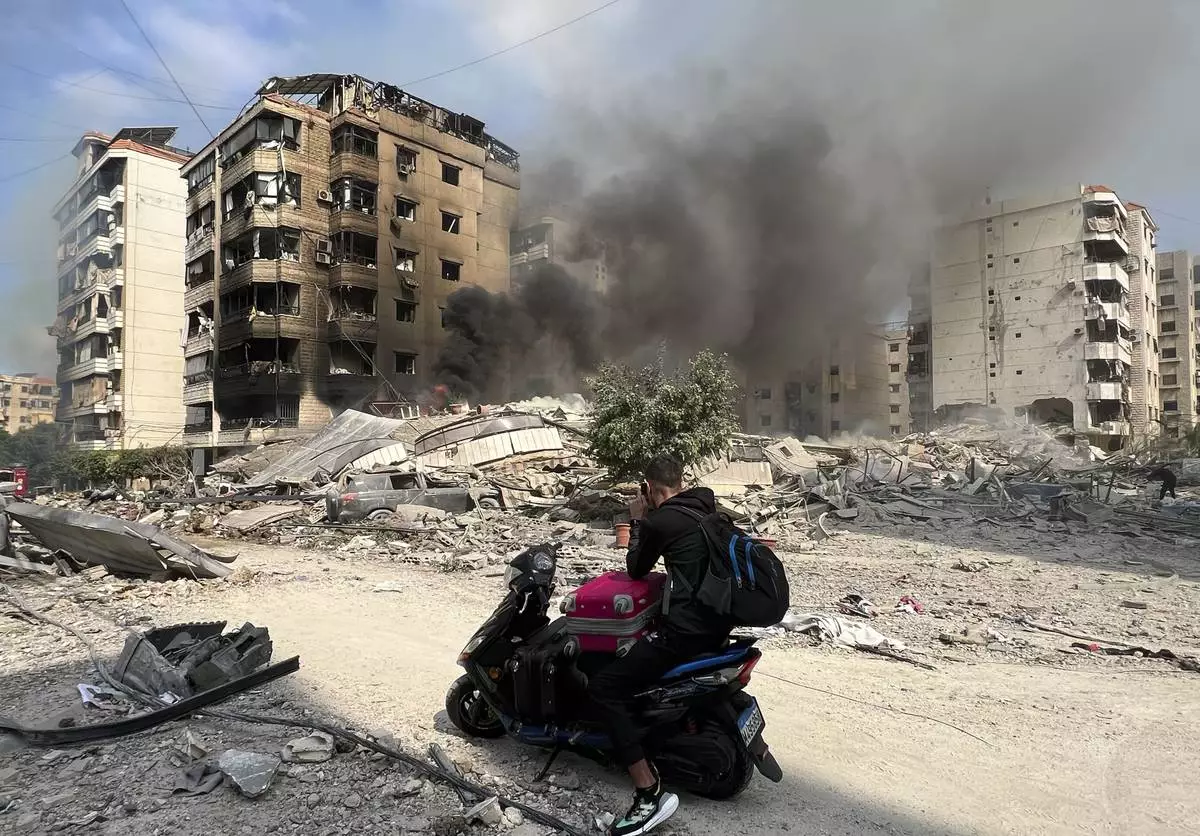
Smoke rises at the site of Israeli airstrikes in Beirut's southern suburbs, Saturday, Sept. 28, 2024. (AP Photo/Hussein Malla)
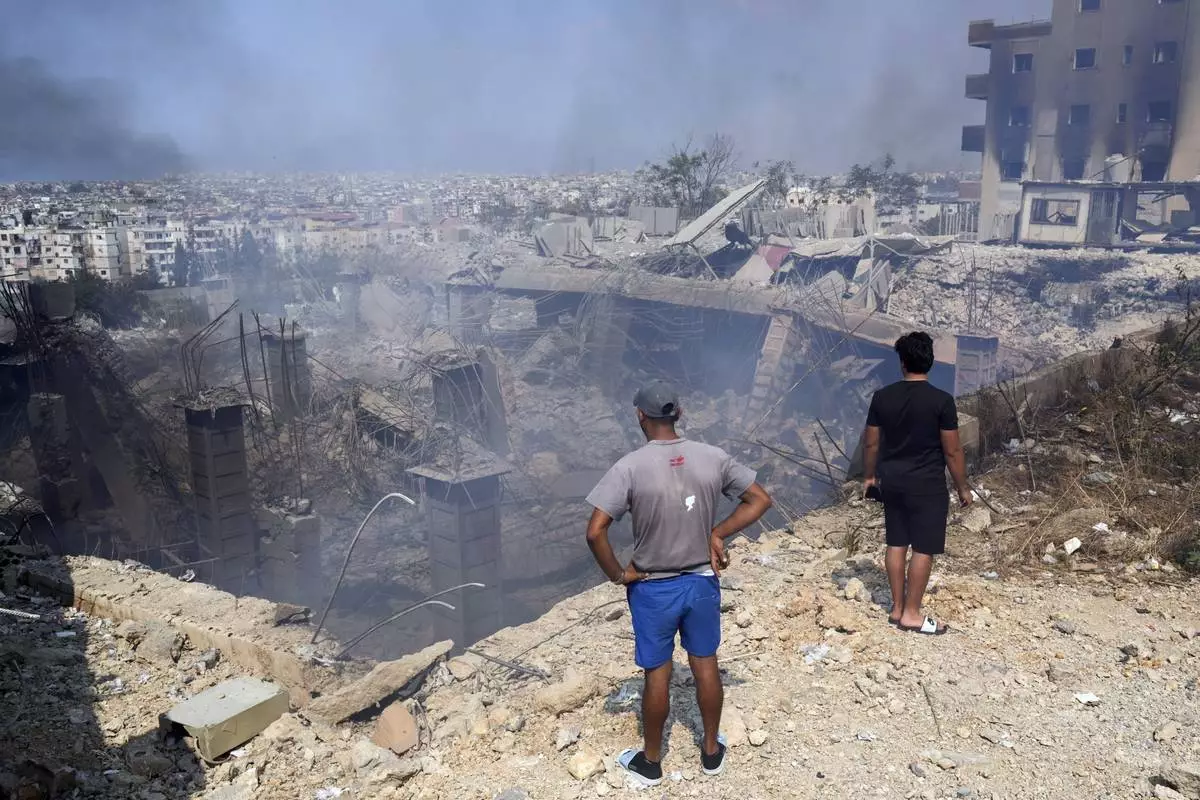
People check a damaged building at the site of an Israeli airstrike in Choueifat, south east of Beirut, Saturday, Sept. 28, 2024. (AP Photo/Hussein Malla)
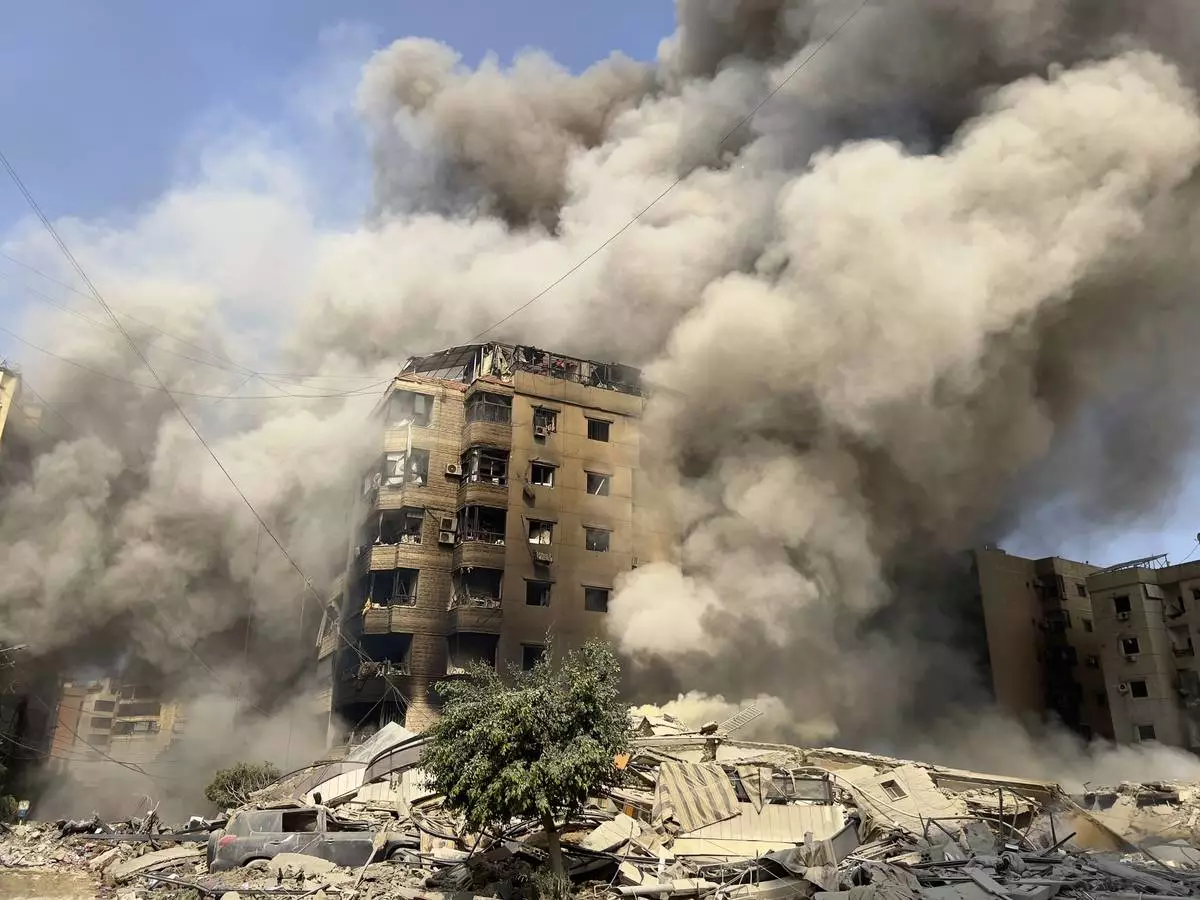
Smoke rises as a building collapses in Beirut's southern suburbs, Saturday, Sept. 28, 2024. (AP Photo/Hussein Malla)
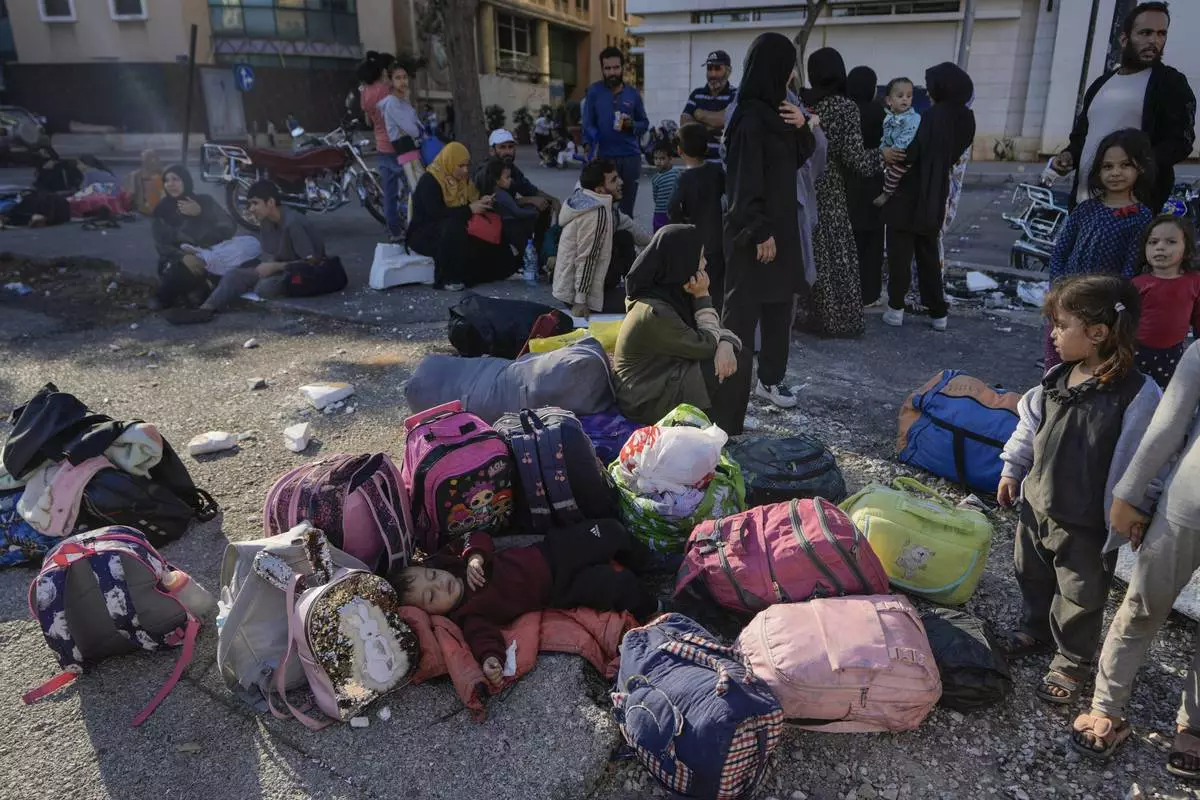
Families gather in Martyrs' square after fleeing the Israeli airstrikes in Beirut's southern suburbs, Saturday, Sept. 28, 2024. (AP Photo/Bilal Hussein)
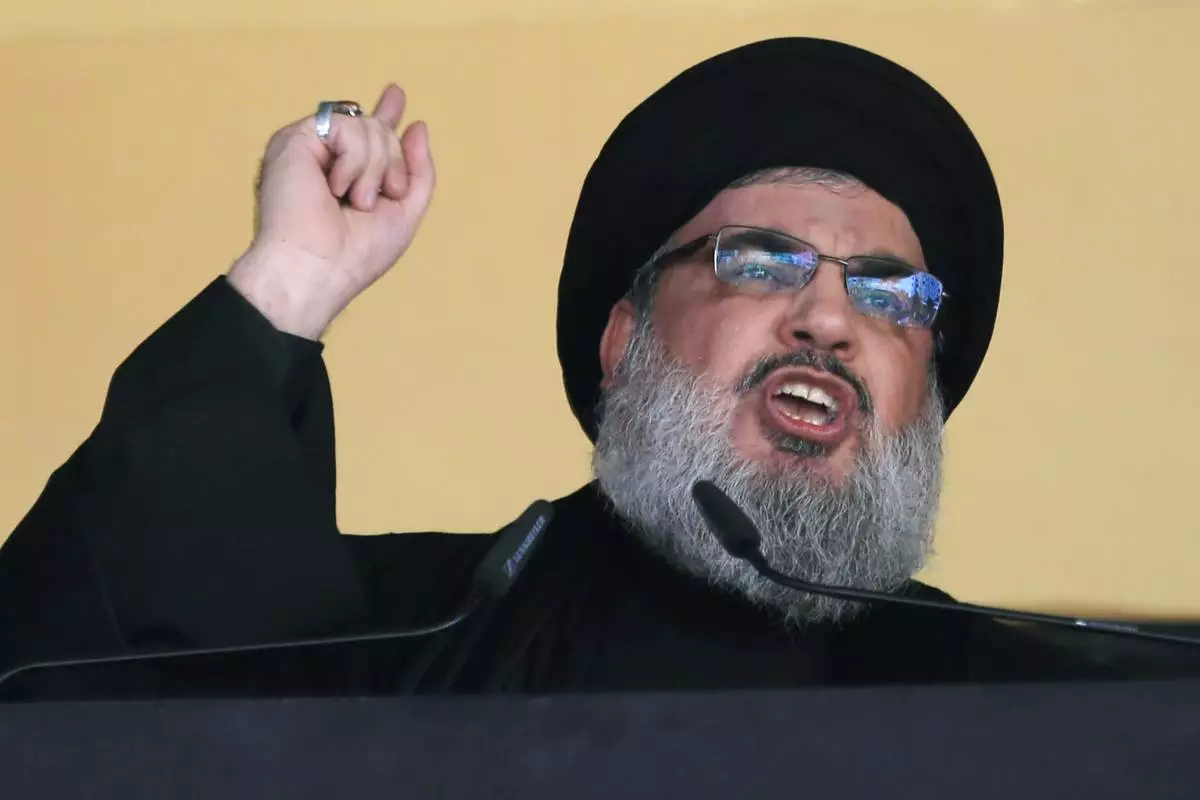
FILE - In this Oct. 24, 2015 file photo, Hezbollah leader Sheik Hassan Nasrallah addresses a crowd during the holy day of Ashoura, in a southern suburb of Beirut, Lebanon. (AP Photo/Hassan Ammar, File)
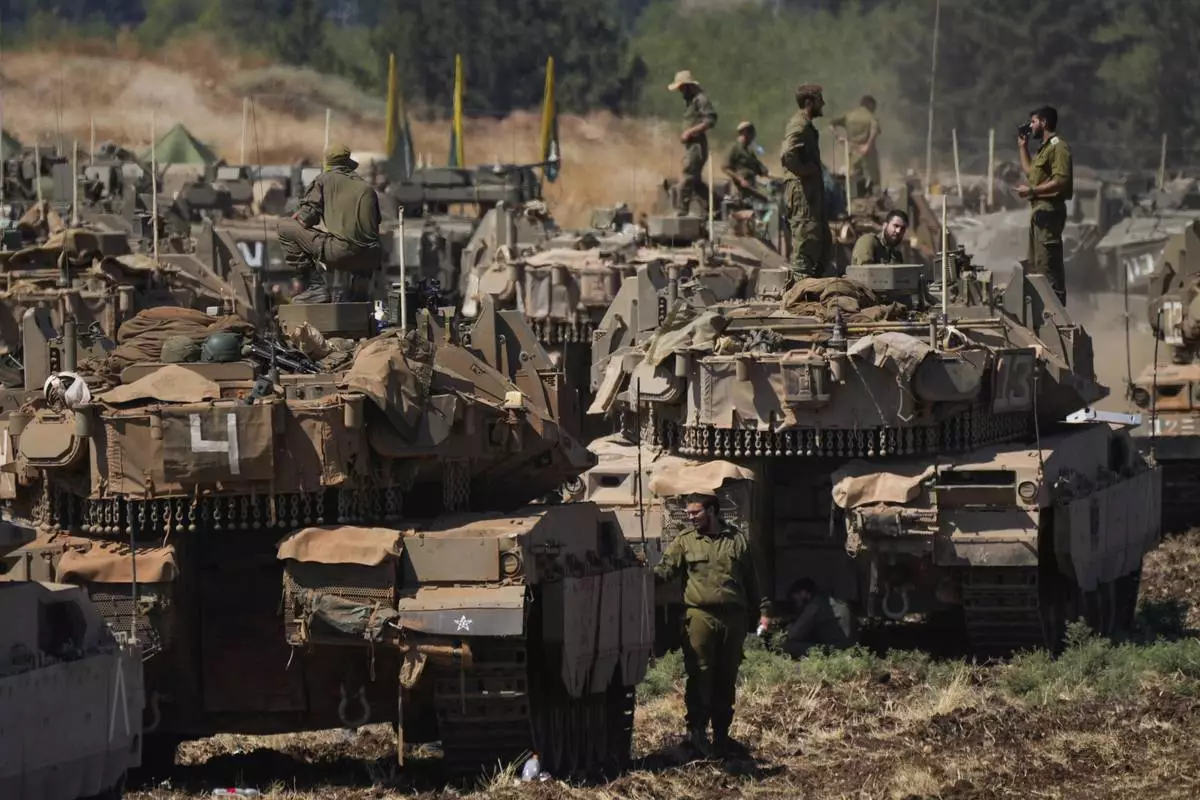
Israeli soldiers work on tanks in northern Israel on Friday, Sept. 27, 2024. (AP Photo/Baz Ratner)
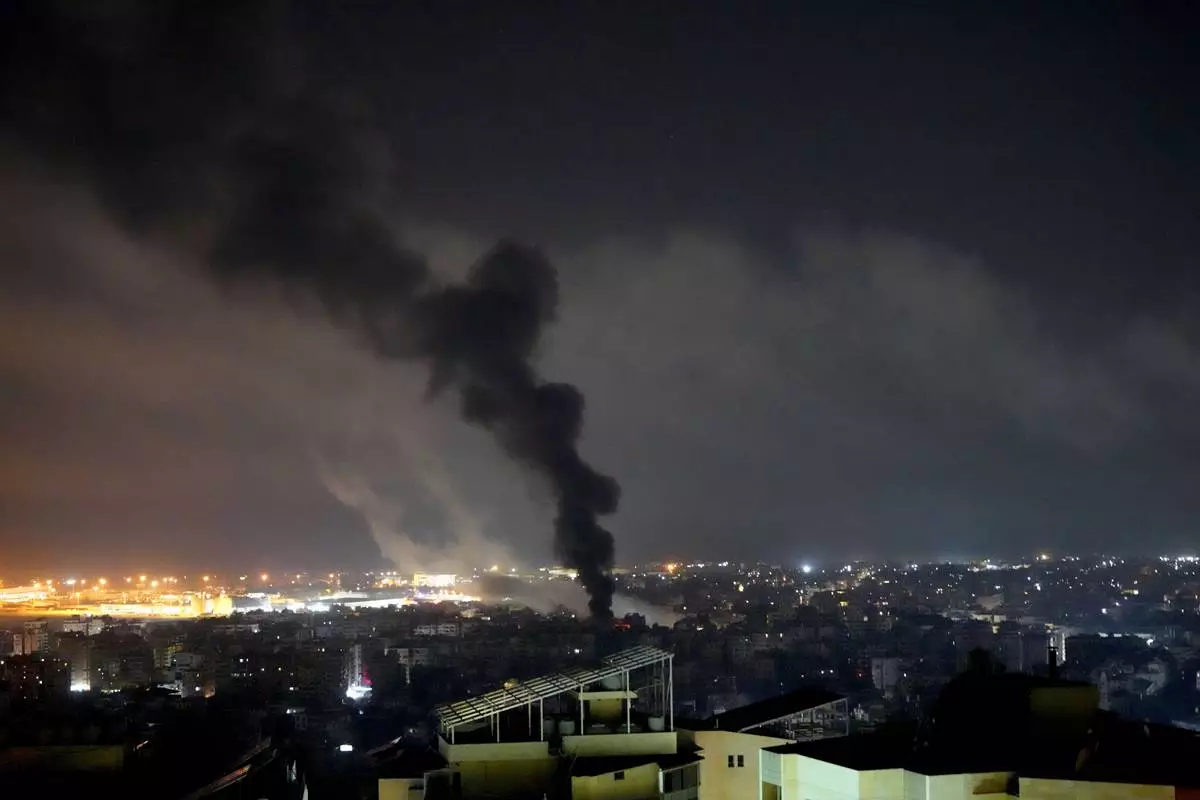
Smoke rises from Israeli airstrikes in Beirut's southern suburbs, Lebanon, Saturday, Sept. 28, 2024. (AP Photo/Hassan Ammar)
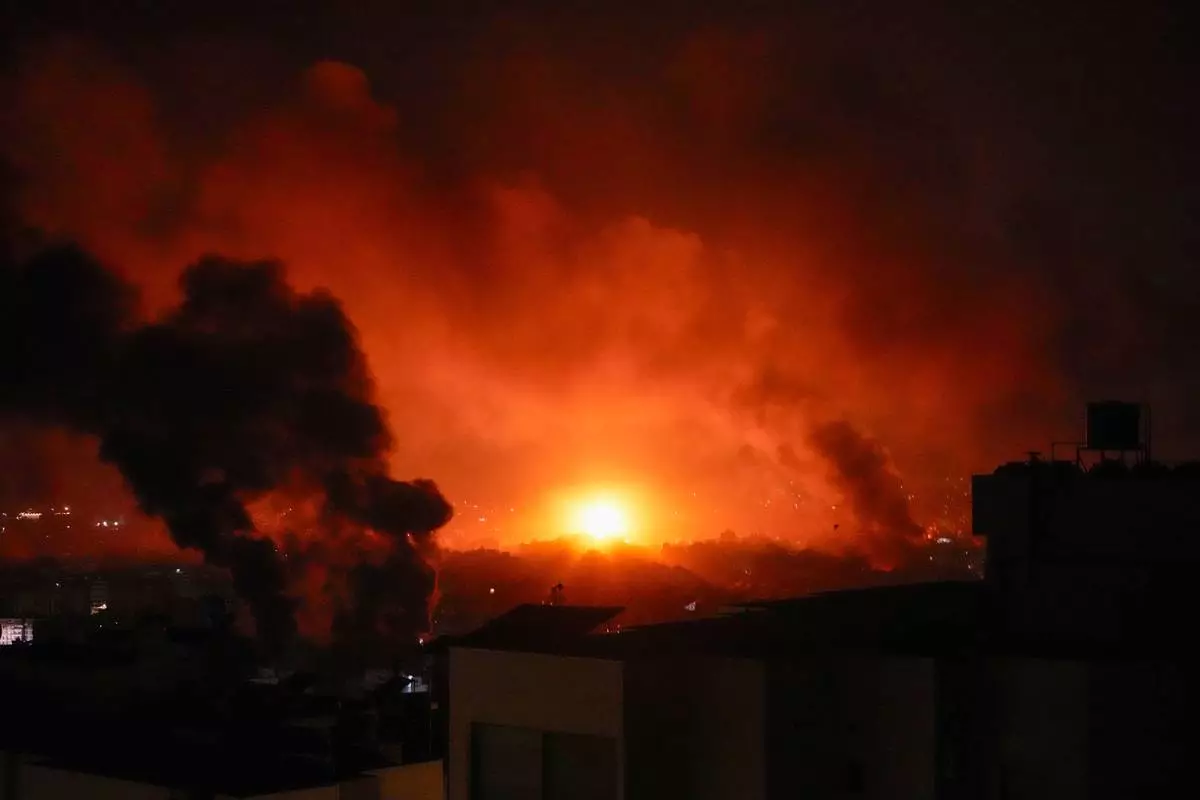
Smoke and fire rise following an Israeli airstrikes in Beirut's southern suburbs, Lebanon, Saturday, Sept. 28, 2024. (AP Photo/Hassan Ammar)
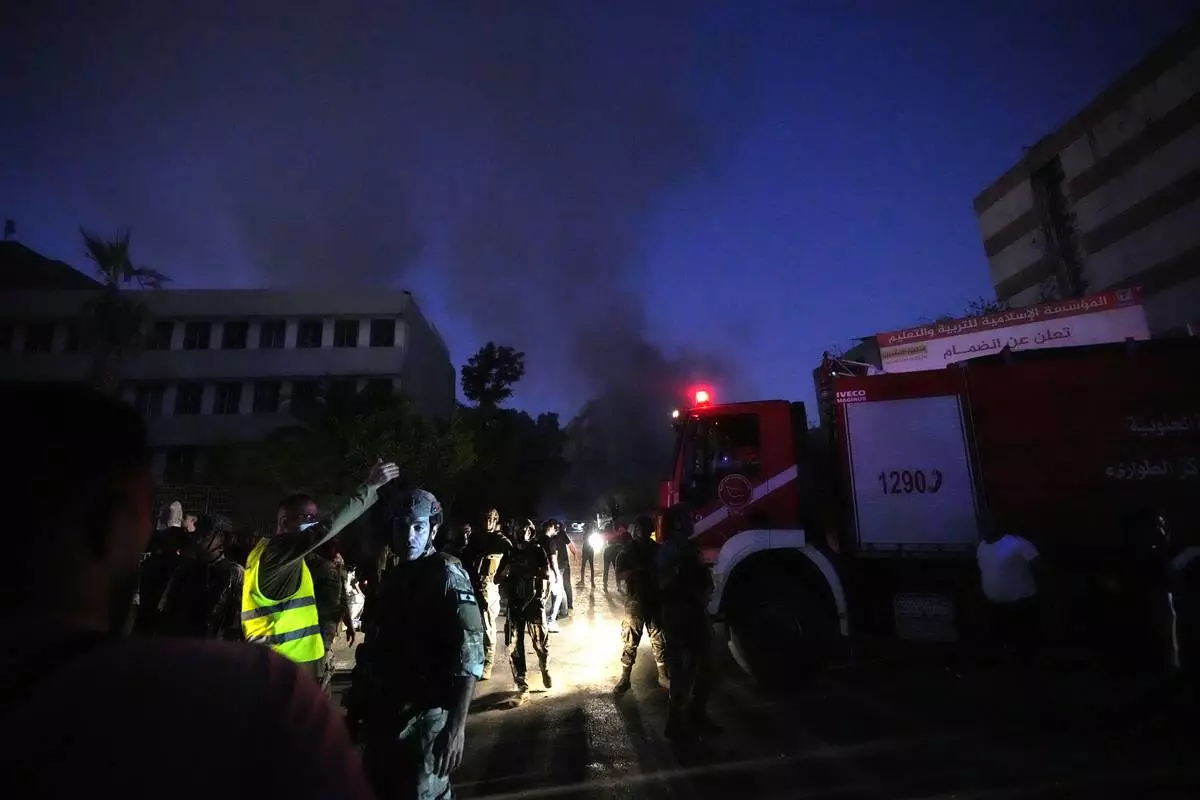
Rescuers arrive near the site of an Israeli airstrike in Beirut's southern suburbs, Friday, Sept. 27, 2024. (AP Photo/Hassan Ammar)
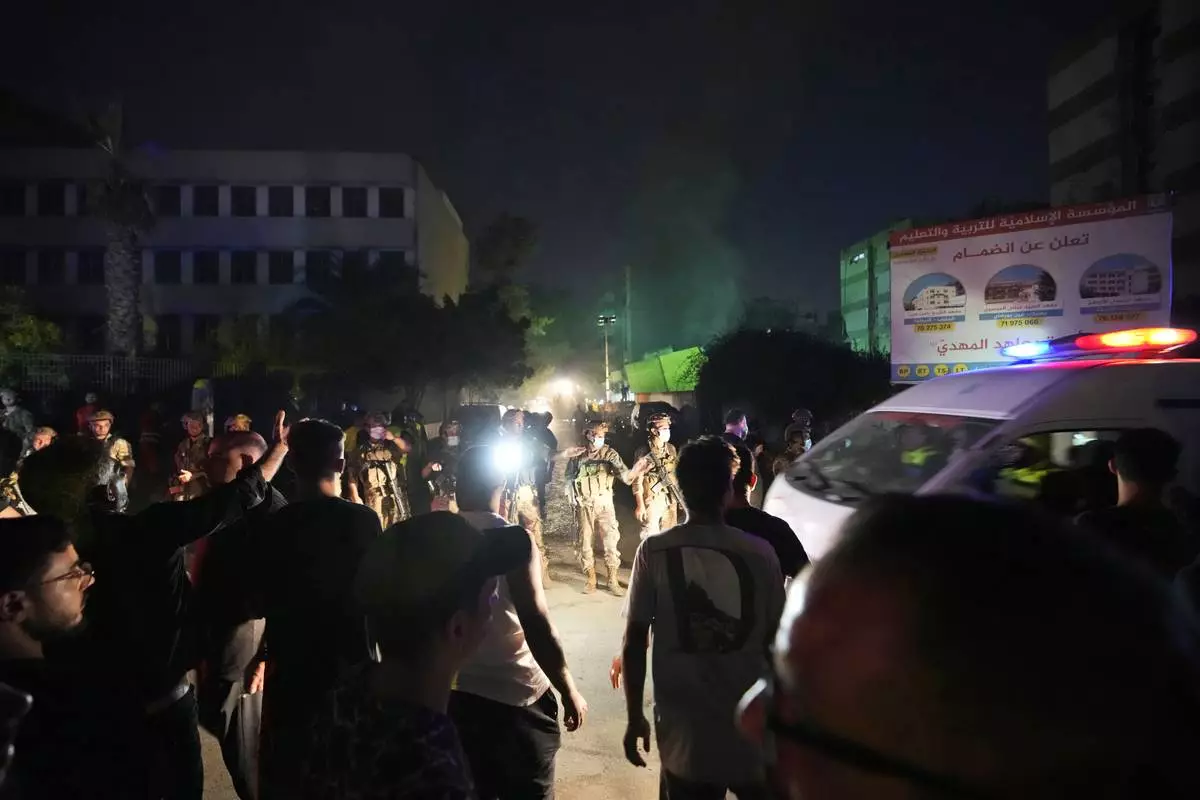
Rescuers arrive near the site of an Israeli airstrike in Beirut's southern suburbs, Friday, Sept. 27, 2024. (AP Photo/Hassan Ammar)
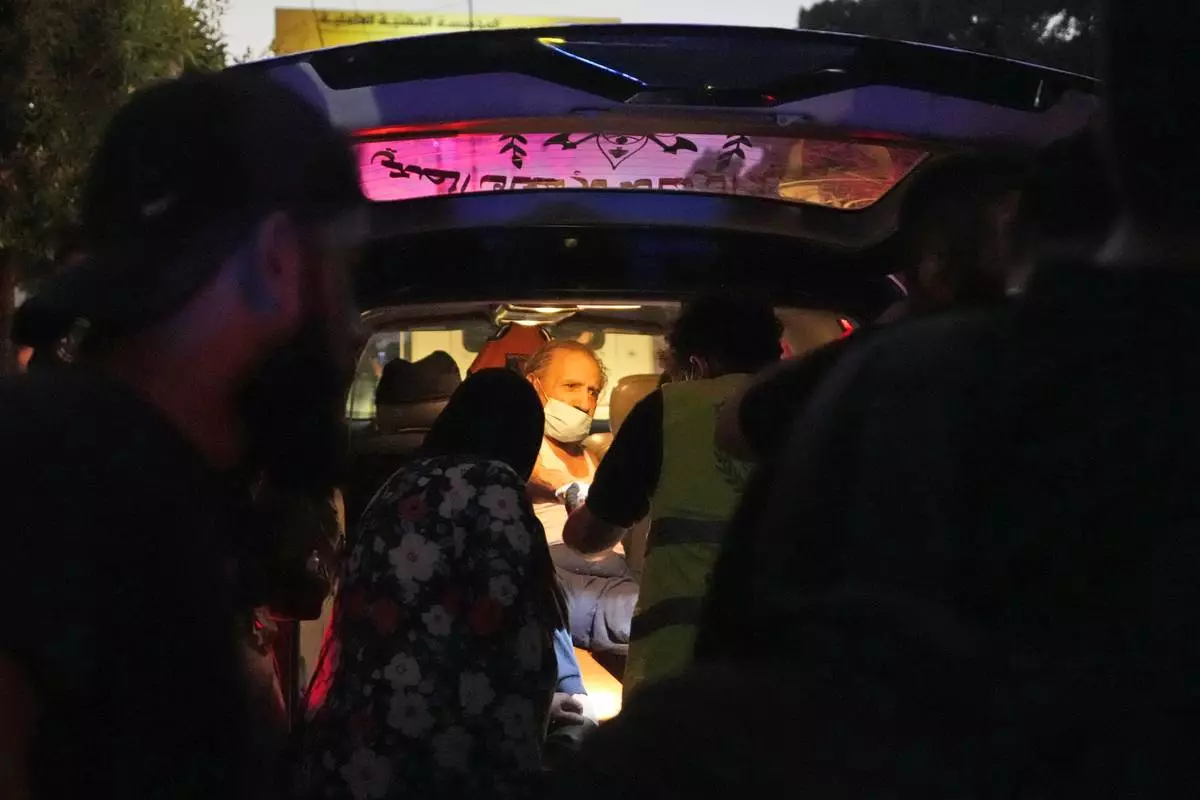
A wounded man sits in an ambulance at the site of an Israeli airstrike in Beirut's southern suburbs, Friday, Sept. 27, 2024. (AP Photo/Hassan Ammar)
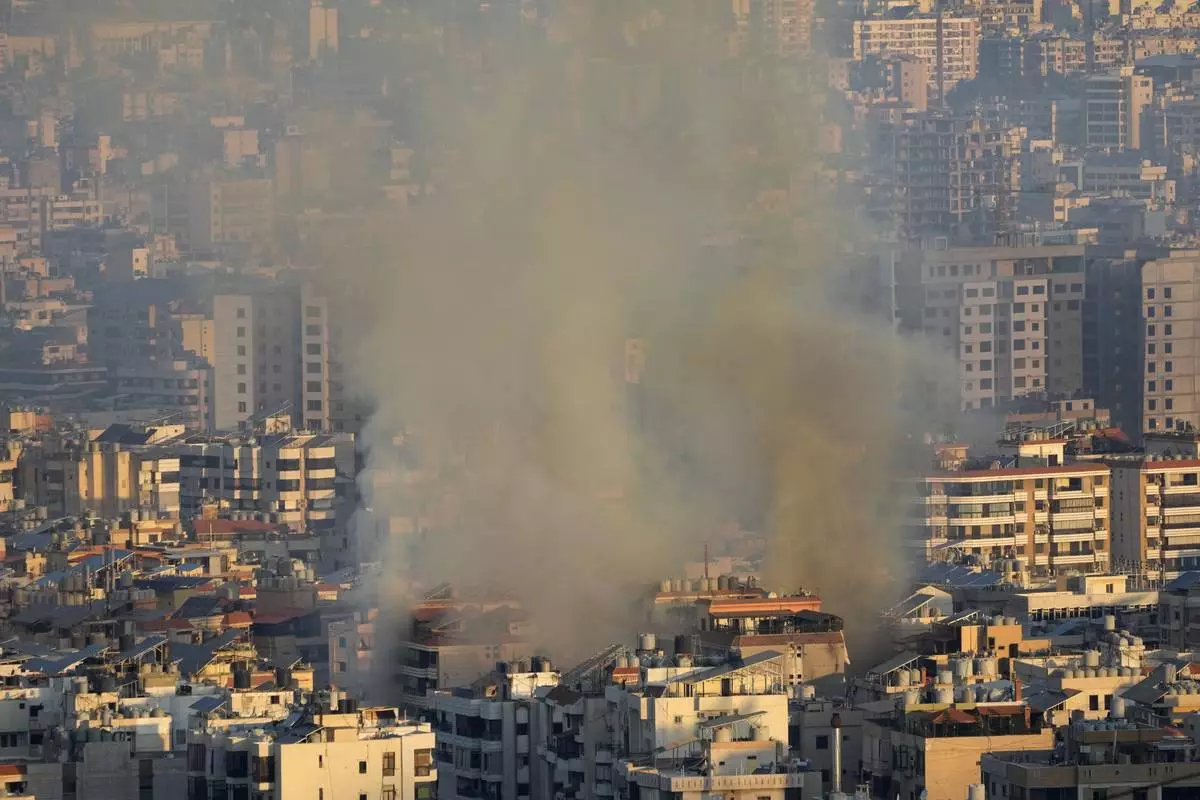
Smoke rises from an Israeli airstrike in the southern suburbs of Beirut, Lebanon, Saturday, Sept. 28, 2024. (AP Photo/Hussein Malla)
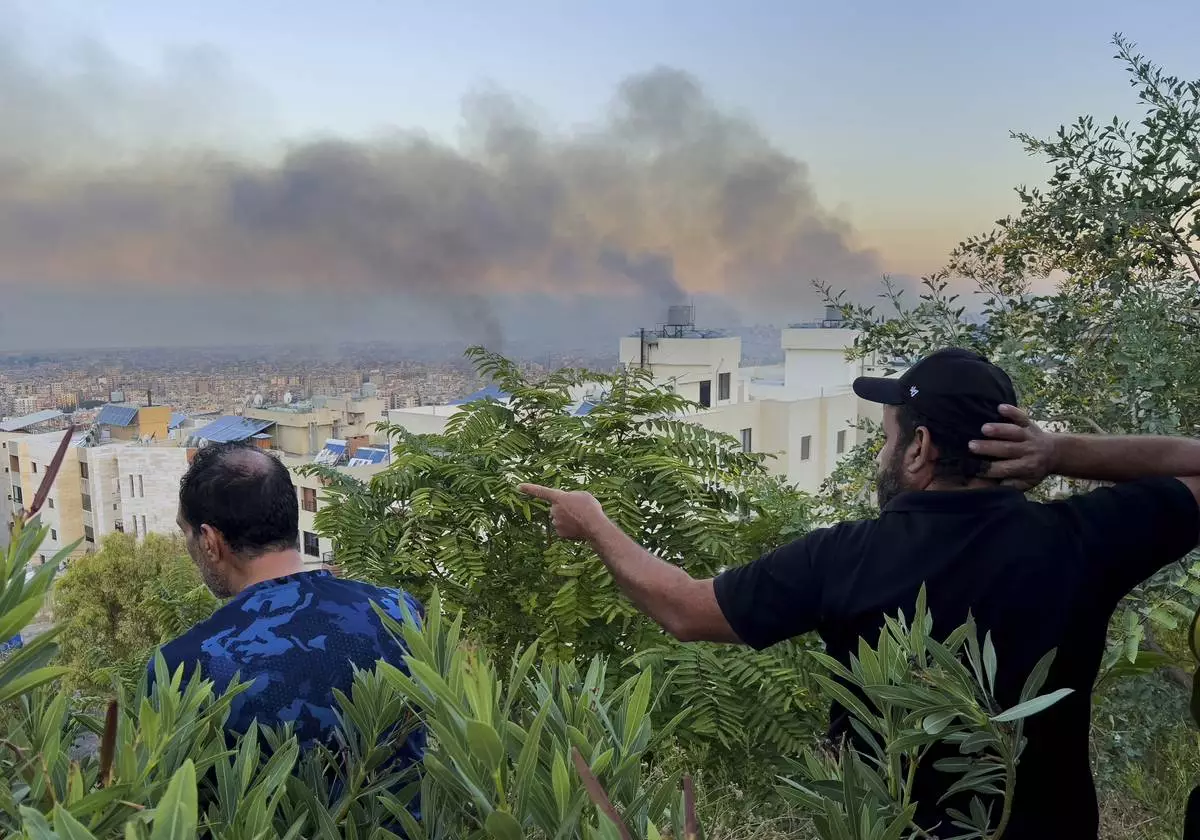
Lebanese citizens watch smoke rise from Israeli airstrikes in the southern suburbs of Beirut, Lebanon, Saturday, Sept. 28, 2024. (AP Photo/Hussein Malla)
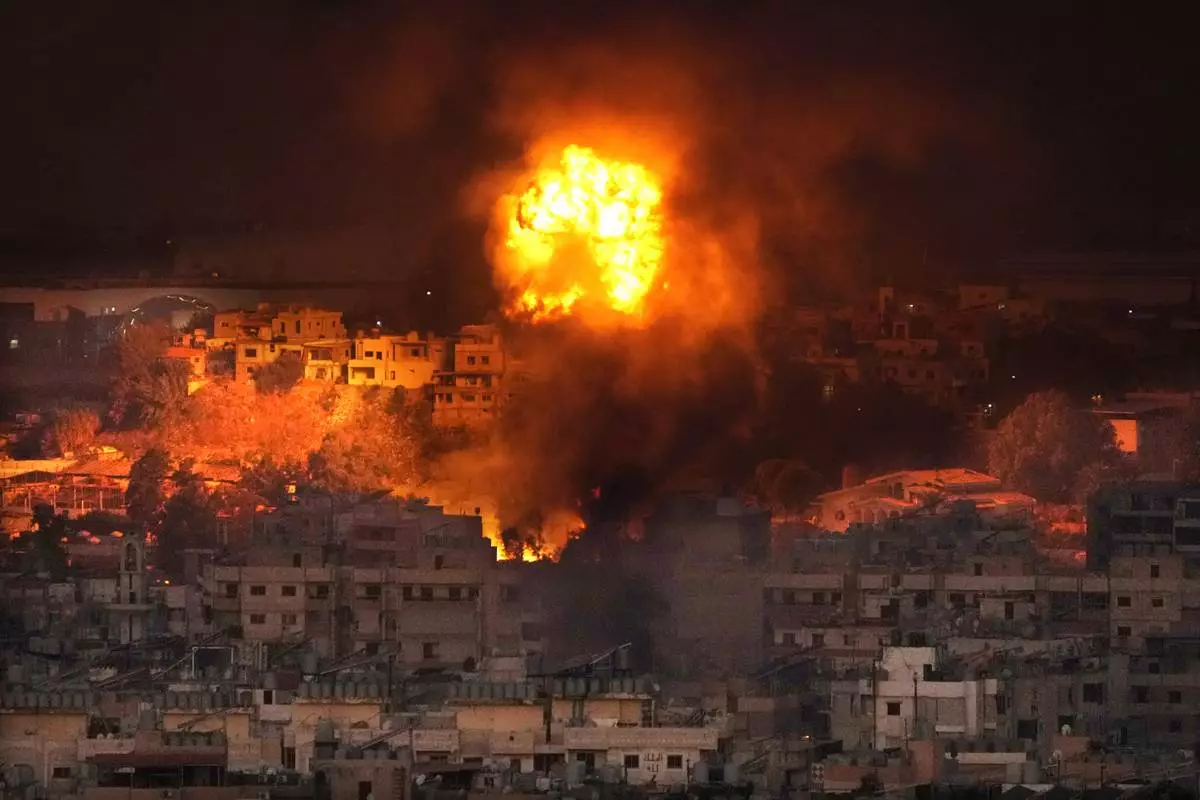
Flames rise after an Israeli airstrike in the southern suburbs of Beirut, Lebanon, Saturday, Sept. 28, 2024. (AP Photo/Hussein Malla)
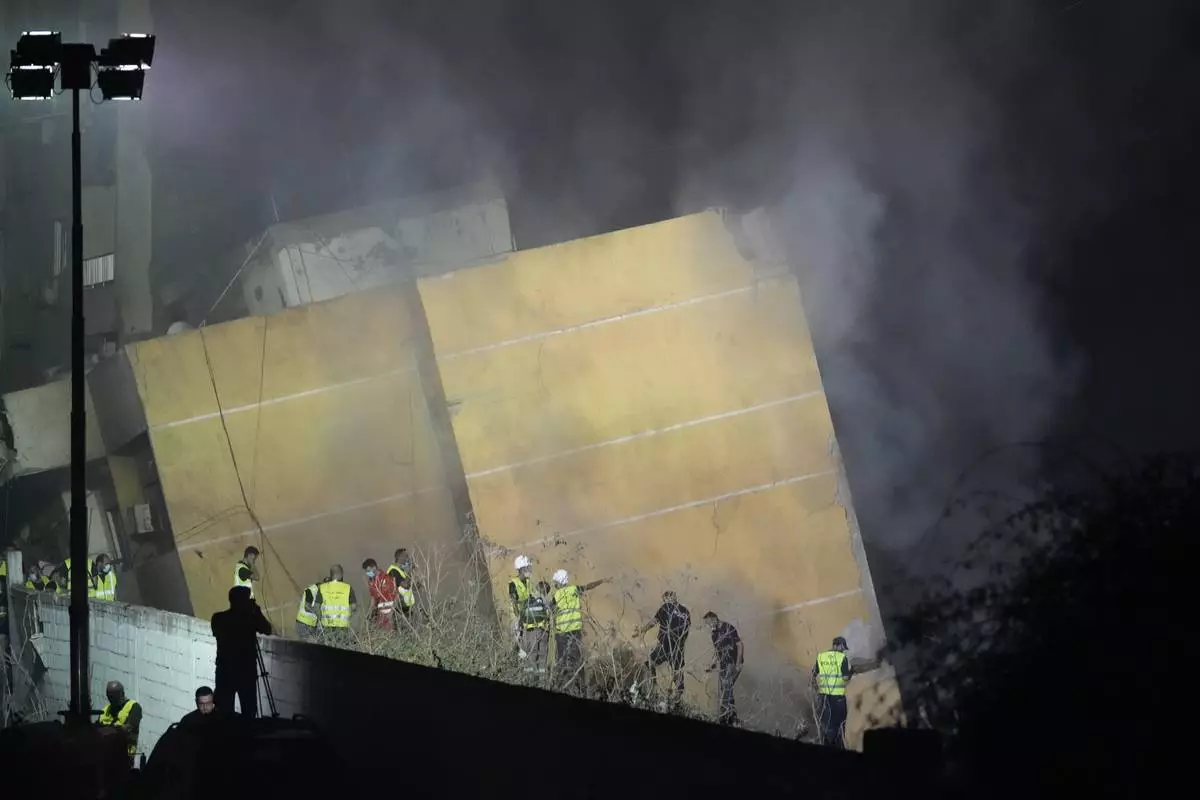
Rescuers gather as smoke rises from a collapsed building at the site of an Israeli airstrike in Beirut's southern suburbs, Friday, Sept. 27, 2024. (AP Photo/Hassan Ammar)
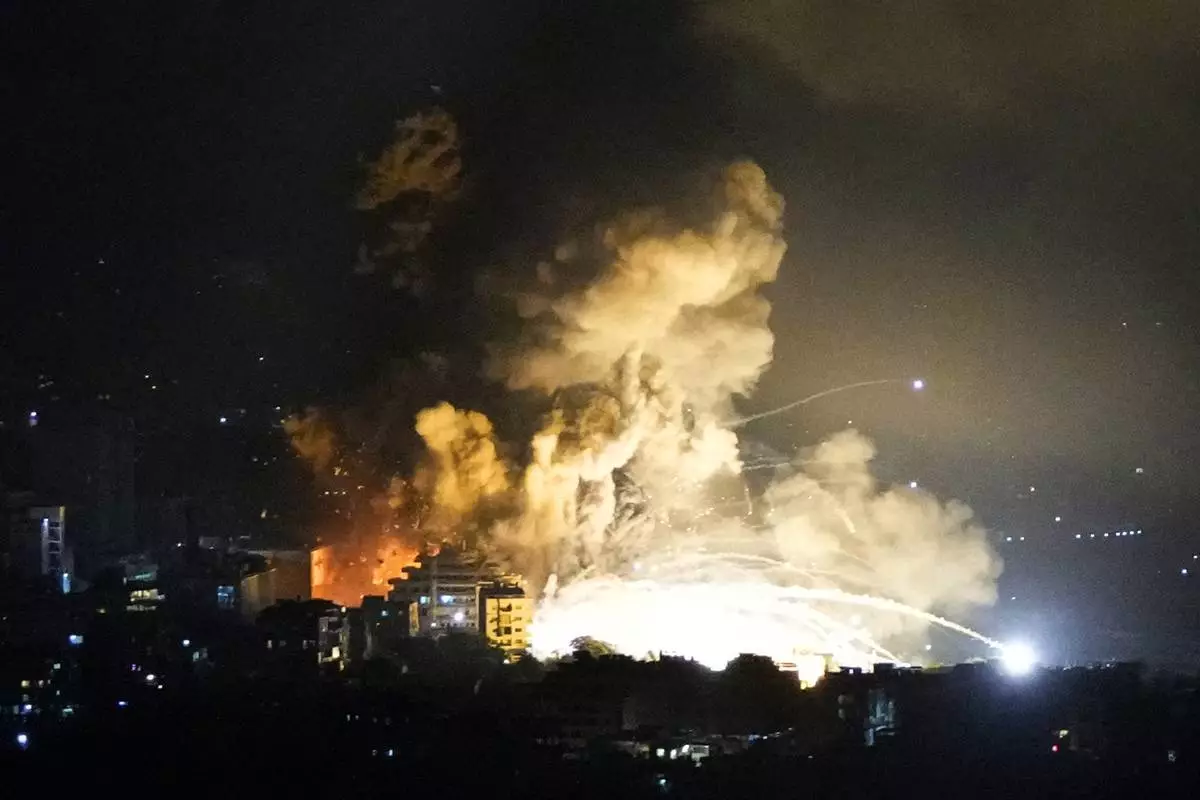
Smoke rises from Israeli airstrikes in Beirut's southern suburbs, Lebanon, Saturday, Sept. 28, 2024. (AP Photo/Hassan Ammar)
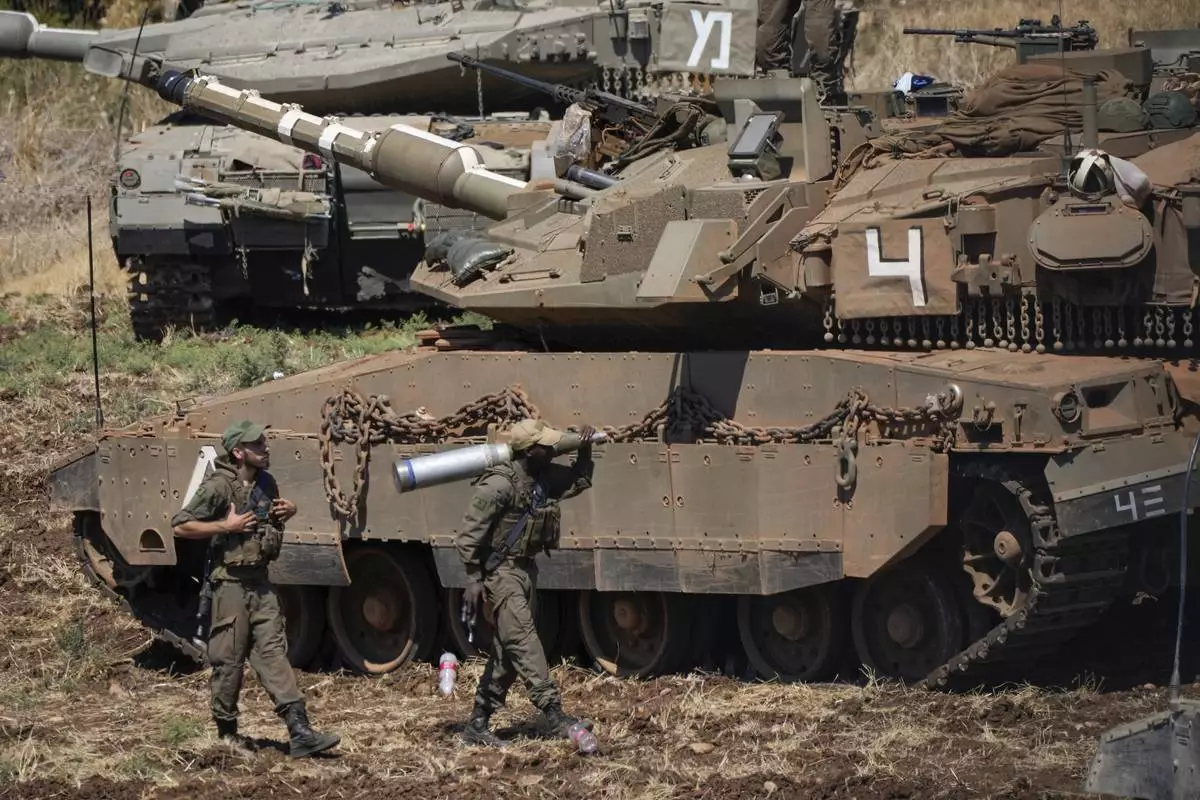
An Israeli soldier carries a shell next to a tank in northern Israel on Friday, Sept. 27, 2024. (AP Photo/Baz Ratner)




